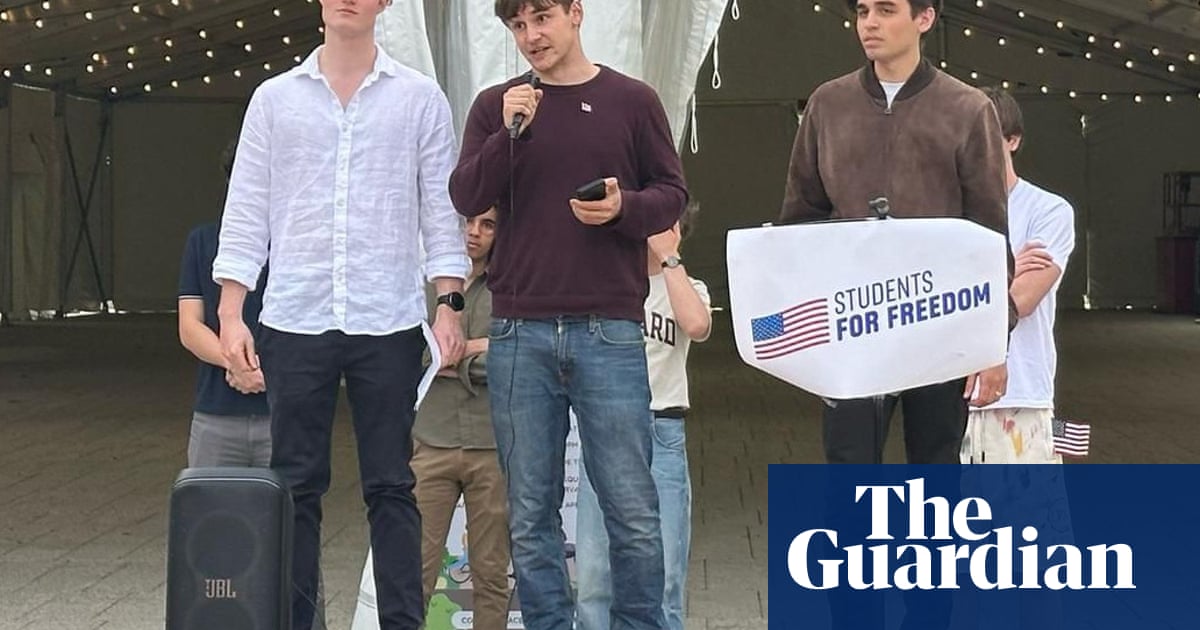A British freshman at Harvard fears he will not be able to return to the US to complete his degree afterDonald Trumpdemanded the university stops teaching international students.
Alfred Williamson, 20, from Cardiff, left Boston when the academic year ended two weeks ago to visit family in Denmark, only to wake up on 23 May to dozens of missed calls and messages from loved ones about the decision to prevent the Ivy League university from enrolling or retaining foreign nationals.
Approximately a quarter of Harvard’s 30,000-strong student body comes from abroad. The university filed a lawsuit last week challenging the government order. On Thursday a Boston judge issued a two-weekinjunction, but the future of thousands of students such as Williamson remain uncertain.
“I was in shock. I had kept a close eye on Trump’s threats but I never thought he’d actually do it, I thought it was just a scare tactic,” said the physics and government student. “People struggled for years to study somewhere like this only for it to be taken away in a matter of moments and we are being called illegal immigrants and aliens. Things are moving quickly and no one knows what to expect.”
The Trump administration has demanded that Harvard’s international students transfer to other universities in order to hang on to their visas.
Both Germany and Hong Kong have floated the idea of hosting “exile campuses” for international students unable to return to the school. Harvard has yet to respond to the proposals.
Since taking office in January, Ivy League and other elite US universities have been in Trump’s crosshairs, with the president repeatedly accusing Harvard of kowtowing to “wokism” and “radical left lunatics” as well as fostering violence and antisemitism since the outbreak of the war in Gaza. He has also claimed, without providing evidence, that the university was coordinating with the Chinese Communist party.
Williamson has also wondered whether the US president singled him out during the announcement of the new measures targeting Harvard. “They’re taking people from areas of the world that are very radicalised and we don’t want them making trouble in our country,” Trump said earlier this week. “I saw yesterday that in the middle of the UK, there was a nice young man who wants to go back to school at Harvard and he looked good to me but I want to check.”
Williamson said: “The mood on campus after Trump was elected was very difficult, people were scared. Rumours Ice agents were around would spread and the international students would all go hide in their dorms.”
He had not yet heard if his visa had been renewed for next year. He was aware that some peers had already faced delays, but said the university had been “very supportive”.
While Williamson was unsure whether he would be able to continue his studies at Harvard, for now, he said, he was not entertaining the idea of applying or transferring elsewhere.
He added: “My first year at Harvard was the best year of my life. I don’t want to give up on that unless there is no other choice.”
